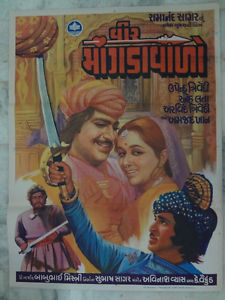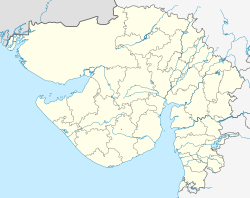Fráech is a Connacht hero in the Ulster Cycle of Irish mythology. He is the nephew of Boann, goddess of the river Boyne, and son of Idath of the men of Connaught and Bébinn, and is renowned for his handsomeness and exploits. He belongs to the Fir Domnann.

Padmini, also known as Padmavati, was a 13th–14th century Rani (queen) of the Mewar kingdom of present-day India. Several medieval texts mention her, although these versions are disparate and many modern historians question the extent of their overall authenticity.

Padmavati also known as Alamelu Manga is a Hindu goddess and the consort of the deity Venkateshvara, a form of Vishnu. She is described as a daughter of a local king and an avatar of goddess Lakshmi, the consort of Vishnu.

The Student Prince in Old Heidelberg, also known as The Student Prince and Old Heidelberg, is a 1927 Metro-Goldwyn-Mayer silent drama film based on the 1901 play Old Heidelberg by Wilhelm Meyer-Förster. It was directed by Ernst Lubitsch, and stars Ramon Novarro and Norma Shearer.

Pabuji is a folk-deity of Rajasthan in India who is also worshiped in parts of Gujarat and the Indus plain.
For one of the major Hindu denominations, the Tirumala Sri Venkateshvara Temple at Tirupati in the Indian state of Andhra Pradesh is the most famous Vaishnavite temple in the world. The presiding deity of Vishnu here is referred to as Venkateshvara. There are many legends regarding this temple. The Sri Venkatachala Mahatyam is the most accepted legend among these, which provides the religious account of the history of the temple across various yugas. This place had also been mentioned in many Puranas.

Chittod Ki Rani Padmini Ka Johur is an Indian historical drama television series that aired on Sony Entertainment Television, based on the life of Rani Padmini, the 14th-century queen of Chittod, Mewar, Rajasthan. The drama premiered on 25 May 2009.

Life Begins at Eight-Thirty is a 1942 comedy-drama romance film starring Monty Woolley as a washed-up, alcoholic actor, Ida Lupino as his daughter, and Cornel Wilde as her boyfriend. It is based on the West End play The Light of Heart by Emlyn Williams.

Ghumli is a village located 45 km from Porbandar, at foothills of Barda, in Devbhumi Dwarka district of Gujarat, India.

Harsidhhi, one of the aspects of Durga, is a regional Hindu goddess, popular in Gujarat, Madhya Pradesh, adjoining Maharashtra states of India.

Mer, Maher or Mehar is a caste from the Saurashtra region of Gujarat in India. They are largely based in the Porbandar district, comprising the low-lying, wetland Ghēḍ and highland Barḍā areas, and they speak a dialect of the Gujarati language. The Mers of the Ghēḍ and Barḍā form two groups of the jāti and together they are the main cultivators in the Porbandar District. Historically, the men served the Porbandar State as a feudal militia, led by Mer leaders. In the 1881 Gazette of the Bombay Presidency, the Mers were recorded numbering at 23,850. The 1951 Indian Census recorded 50,000 Mers. As of 1980 there were estimated to be around 250,000 Mers.

Milan (transl. Union) is a 1946 Hindi-language drama film directed by Nitin Bose. The film starred Dilip Kumar, Mira Misra, Ranjana, Pahari Sanyal and Moni Chatterjee. It was an adaptation of Rabindranath Tagore's 1906 Bengali story Noukadubi. The screenplay adaptation was done by Sajanikanta Das with dialogues translated into Hindi by P. L. Santoshi. The film's music was composed by Anil Biswas and the lyrics written by P. L. Santoshi and Arzu Lakhnavi.

Muddula Mogudu is a 1997 Indian Telugu-language drama film produced by K. Nageswara Rao, presented by Kaikala Satyanayana and directed by A. Kodandarami Reddy. It stars Nandamuri Balakrishna, Meena, Ravali, and music composed by Koti. The film was released on 25 April 1997.
Atkot is a neighborhood in Jasdan City, Gujarat, India.

Pavalakodi is a 1949 Indian Tamil-language film produced and directed by S. M. Sriramulu Naidu. It revolves around the turn of events between lord Rama and Karna and declare war over each other. The film stars M. G. Ramachandran as Karna, T. R. Mahalingam as Krishna, N. S. Krishnan as Rama, T. E. Varadan and T. R. Rajakumari.

The last two Gujarat Sultans, Ahmad Shah III and Mahmud Shah III, were raised to throne when they were young so the nobles were ruling the Sultanate. The nobles divided territories between themselves but soon started fighting between themselves for supremacy. One noble invited the Mughal emperor Akbar to intervene in 1572 which resulted in the conquest of Gujarat by 1573 and Gujarat becoming the province of the Mughal Empire.
Ranakadevi was a legendary 12th century queen of Khengara, the Chudasama ruler of Saurashtra region of western India. She is mentioned in the bardic tragic romance representing the battle between Chudasama king Khengara and Chaulukya king Jayasimha Siddharaja. However, this legend is not credible.
Jethwa dynasty was a dynasty that ruled over present day Gujarat region of India from 7th century AD till middle of 20th century, when India became independent. It was a Rajput dynasty ruled by Jethwa clan of Rajputs.
The early history of Chudasama dynasty of Saurashtra region is almost lost. The bardic legends differs very much in names, order and numbers so they are not considered reliable. Mandalika Kavya, a Sanskrit poem by Gangadhara, gives some information on dynasty but it has little historical value. Some of their inscriptions gives their genealogy but they too differ in order of succession. Ranchhodji Diwan, A. K. Forbes, James Burgess and Gaurishankar Oza had tried to fix genealogy and chronology. They ruled about from Vikram Samvat (VS) 900 to VS 1527.

Vir Mangdavalo is 1976 Gujarati romantic fantasy film directed by Babubhai Mistry from India. The film depicted a folklore from Gujarat. The lead role was played by Upendra Trivedi, Arvind Trivedi and Snehlata. The music was composed by Avinash Vyas. It was a commercial success. The film was dubbed in Bhojpuri as Amar Suhagin in 1978.

















